Celebrate Skyrim’s fifth birthday with five reasons Oblivion was better
Better guild quests, a spell-crafting system, and other reasons Oblivion was a superior RPG.
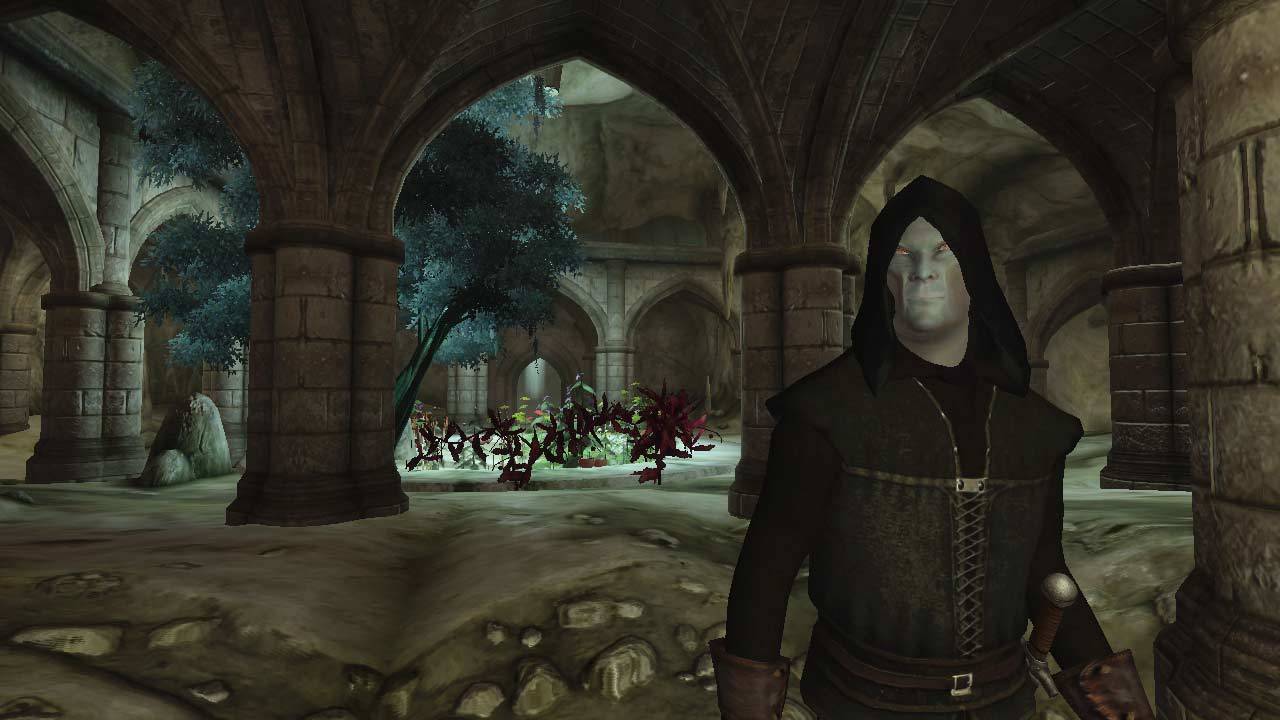
Skyrim turns five years old today, and what better way to celebrate its anniversary than by talking about its predecessor, the ten-year-old Oblivion, and why it’s a better game. This isn’t meant as some big diss on Skyrim, which is a great RPG I’ve spent over 200 hours playing. But Oblivion is still better, and here’s why:
The guild questlines
The guild storylines in Skyrim had strong stories and enjoyable adventures, but they absolutely pale in comparison to Oblivion’s. Oblivion had the Fighter’s Guild questline and its gut-wrenching reveal after you wipe out a group of goblins, the Mage’s Guild story filled with intrigue, necromancers, and a surprising amount of destruction, and the Thieves Guild quests which culminate in the thrilling theft of an Elder Scroll from deep within the Imperial Palace.
The best, of course, was the Dark Brotherhood questline (spoilers to follow). Taking a nap after killing someone who perhaps didn’t deserve it resulted in a recruitment pitch from a member of the Dark Brotherhood, Lucien Lachance. Join the guild and you’ll be dispatched to eliminate a series of targets as you work your way up the Brotherhood’s ladder.
The story includes an amazing mission to visit a party where you’re assigned to kill everyone in attendance, with a bonus goal of making sure no one ever knows you’re the killer. You can talk to your targets, discover the best ways to isolate them from the rest of the guests, and bump them off one-by-one, always deflecting the suspicions elsewhere. You can even convince one of the two remaining guests to kill the other, making your job that much easier. Brilliant, bloody fun.
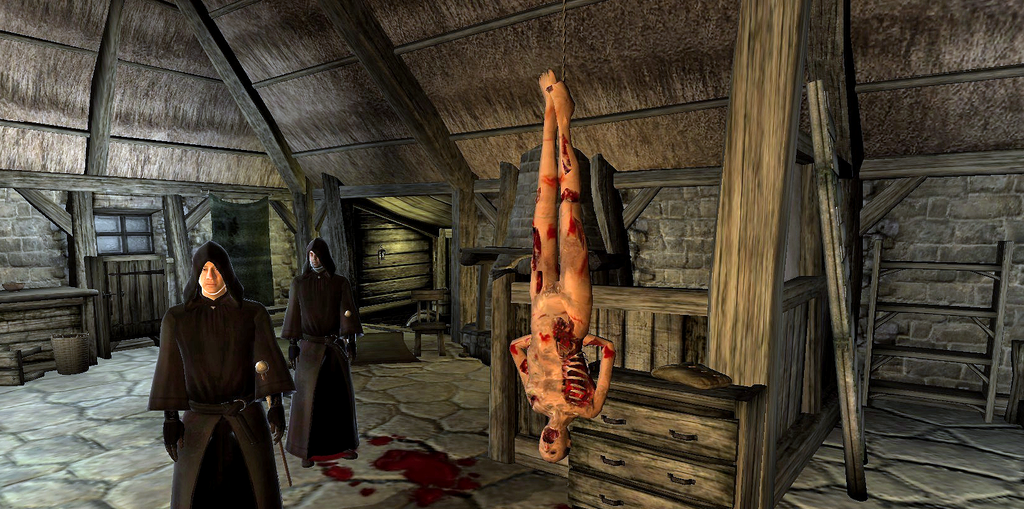
And there’s a fantastic twist to the Brotherhood questline. Midway through a series of dead drop assassination missions, Lucien suddenly appears to ask just what the hell you’ve been doing. It turns out the dead drops you’ve been receiving orders from have been compromised, your instructions have been replaced by an interloper, and you’ve actually spent the past few missions murdering members of the Dark Brotherhood’s inner circle! Ahh… delicious.
Lucius winds up being blamed for the mis-killings, tortured, hung like a side of beef, and even partially eaten. It’s a truly shocking and dispiriting moment to see him strung up naked, dead, and mutilated. Lucien was the slickest and coolest dude in the game, someone far too cool to wind up dangling upside down with half his face gone. That kind of thing doesn’t happen to cool people, does it? In Oblivion, it does. Man. What a fantastic story.
Spellcrafting
Perhaps as a way to streamline Skyrim a bit to appeal to more players, some of the complexities of Oblivion were left behind. In particular, the ability to craft spells. Using an Altar of Spellmaking opened a pane where you could select the magical effects you had learned and were able to cast, and use them to create custom spells. You could set the range of the spell, the area of effect, and the duration, the parameters of which were determined by the Magicka cost and your skill level. You could mix, match, and combine effects, stack spells, and even name them. It was a fantastic feature, and its absence from Skyrim feels especially odd now, since crafting has become such a big element in games the past few years.
Keep up to date with the most important stories and the best deals, as picked by the PC Gamer team.
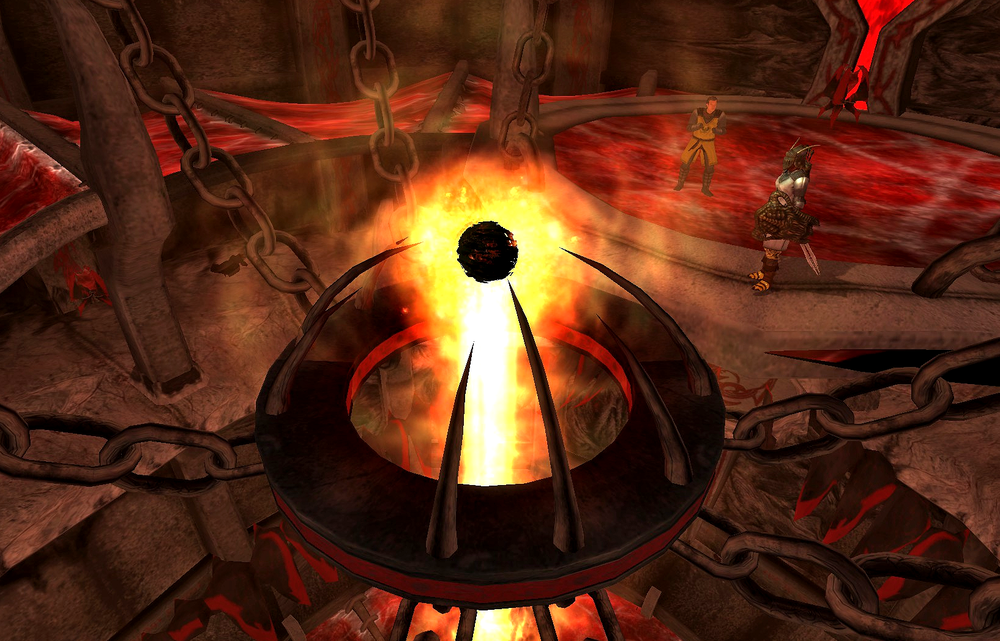
Daedra are better than dragons
I’ll admit the main storyline of Oblivion isn’t especially great. Closing those damn Oblivion gates, one after another after another, becomes a real slog. But if you ask me, battling the Daedra in Oblivion is still better than battling Skyrim’s unending and frankly boring parade of dragons.
The first time you see a dragon in Skyrim, it’s very cool. The first time you fight one, it’s extremely exciting. Then you fight another. Then another. Eventually it becomes dull, and then simply a nuisance, something that makes you wearily climb off your horse for a minute or two. Now, I just let out a sigh when one appears circling overhead, and many times I’ve killed it and stripped it for parts so quickly that I’m already selling its bones to an unimpressed shopkeeper before I’ve fully finished absorbing its soul.
I prefer the Daedra because they don’t swoop down on me when I’m hunting deer or walking through town or picking Nirnroot by a riverside. Plus, there’s the added bonus of discovering Mythic Dawn agents in Oblivion, townsfolk who secretly worship the cult. In Skyrim, did you ever discover that a dragon was disguised as an average citizen? No. It would have been cool, though.
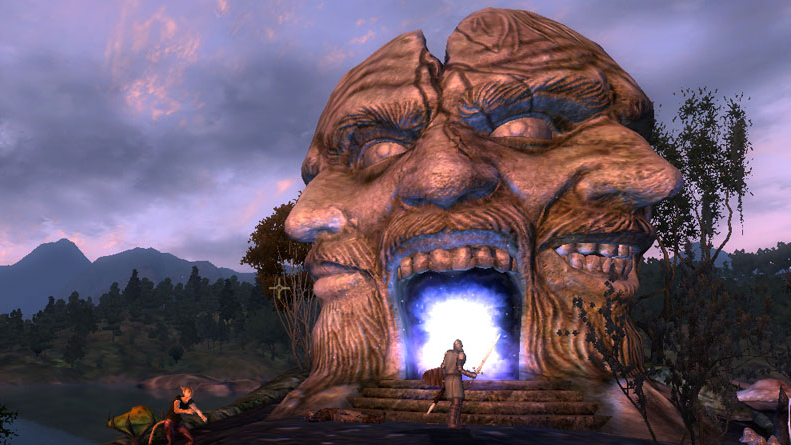
(Slightly) Better expansions
This is almost a tie, but I give the edge to Oblivion. Skyrim’s expansions were a mixed bag: Dawnguard gave you the chance to become a vampire lord, but didn’t provide a heck of a lot of adventure, and Hearthfire let you build a house— perhaps serving as a precursor to what would eventually become Fallout 4’s settlement building feature—but it wasn’t much fun. Dragonborn was very good, though the selling point, dragon-riding, was a big disappointment.
Oblivion’s expansions were Knights of the Nine, which wasn’t exactly sprawling but had a great main quest, and Shivering Isles, which provided a couple dozen hours of exciting and bizarre adventures as you meet the Daedric Prince of Madness, become his champion, and eventually wear his crown. Most of the rest of Oblivion’s DLC was forgettable (except for the Horse Armor Pack, which no one will ever forget), giving the player a couple of quests to claim new headquarters, but Mehrune’s Razor stood out by providing a surprisingly large underground area to sneak and stab your way through if you happen to be an assassin (which I was at the time). Good stuff.
Enemy scaling
I know a lot of players didn’t care for the fact that the enemies in Oblivion scale alongside them as they played, and I can see the downsides of it myself. There’s a certain satisfaction in evolving into an immensely powerful being who can easily wipe out scores of enemies, the same enemies that gave them trouble when they were low-level. It’s a reward for progress: those skeletons you had trouble fighting as a beginner now shatter with one fearsome swing, and it feels good.
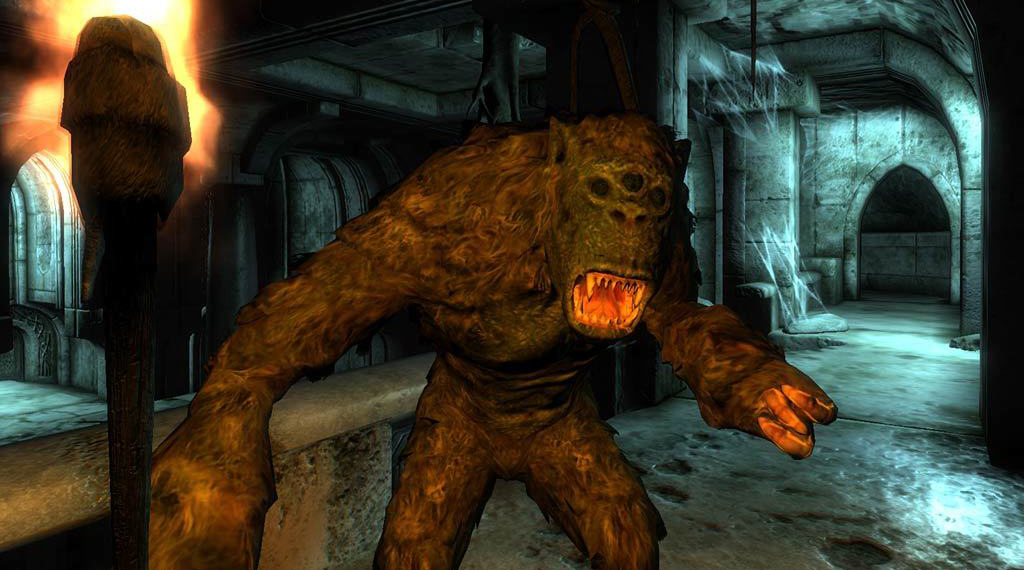
Oblivion didn’t work that way, and I admit it was a bit weird. At low levels, you might face a desperate highwayman wearing rags, or be attacked by a couple of wolves. Once you’ve gained some levels, you’ll notice the highwayman is wearing better gear and the wolves have been replaced by much meaner boars. Gain more levels and the robber will be decked out in expensive glass armor and the boars are now fearsome mountain lions. You never get a chance to mow down those simple skeletons when you come back as a high-level character, because those skeletons are gone, having become high-level wraiths and liches. It doesn’t make a whole lot of sense.
There is an upside, though, a big one, and it’s found in the immense freedom the game gives you the moment you finish the tutorial. You can wander anywhere on the map, absolutely anywhere, and find an appropriate challenge. You don’t have to worry about being gutted in a heartbeat just because you’re level 2 and you wandered into an area with level 20 monsters. The world is yours to explore, every inch of it, right from the start. Less realistic? Less immersive? Yeah, I would say so. But you get so much more freedom, and each time you begin a new game you can start anywhere you like.
Bonus sixth reason
The Adoring Fan. You pretend to hate him, but you love him and miss him. Go on back and play Oblivion. He’ll be waiting.
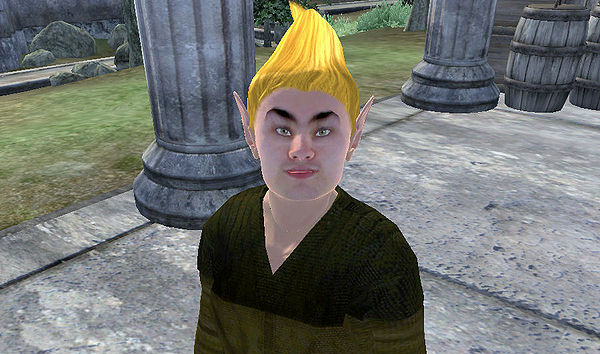

Chris started playing PC games in the 1980s, started writing about them in the early 2000s, and (finally) started getting paid to write about them in the late 2000s. Following a few years as a regular freelancer, PC Gamer hired him in 2014, probably so he'd stop emailing them asking for more work. Chris has a love-hate relationship with survival games and an unhealthy fascination with the inner lives of NPCs. He's also a fan of offbeat simulation games, mods, and ignoring storylines in RPGs so he can make up his own.

